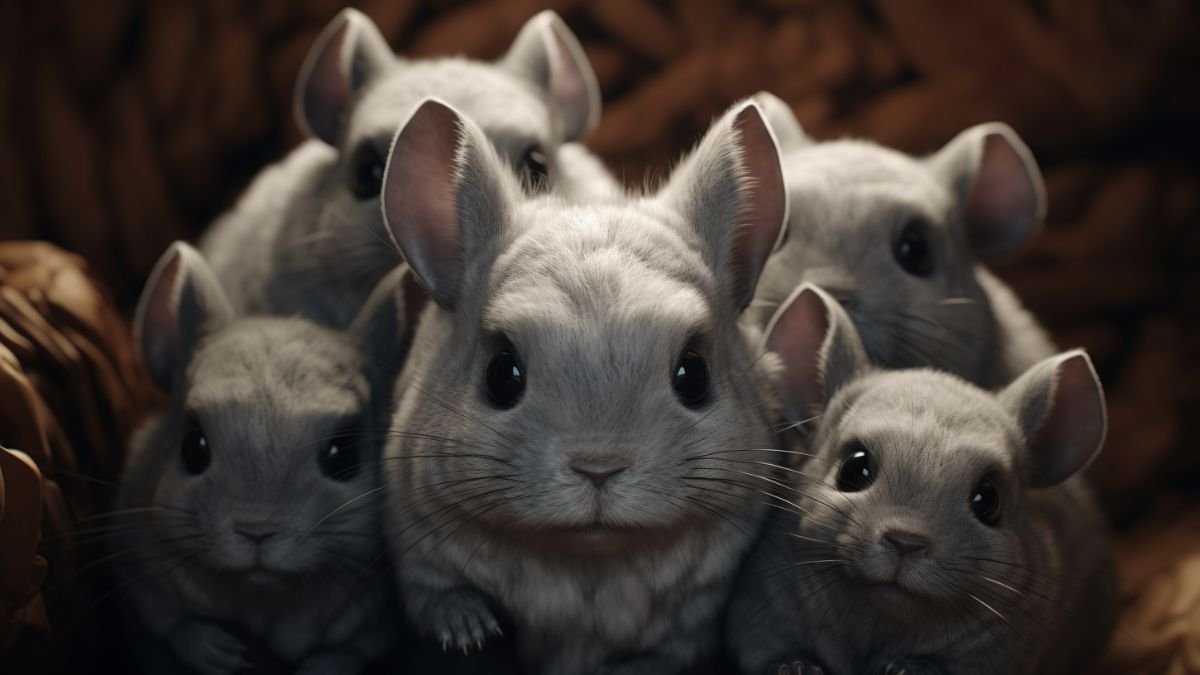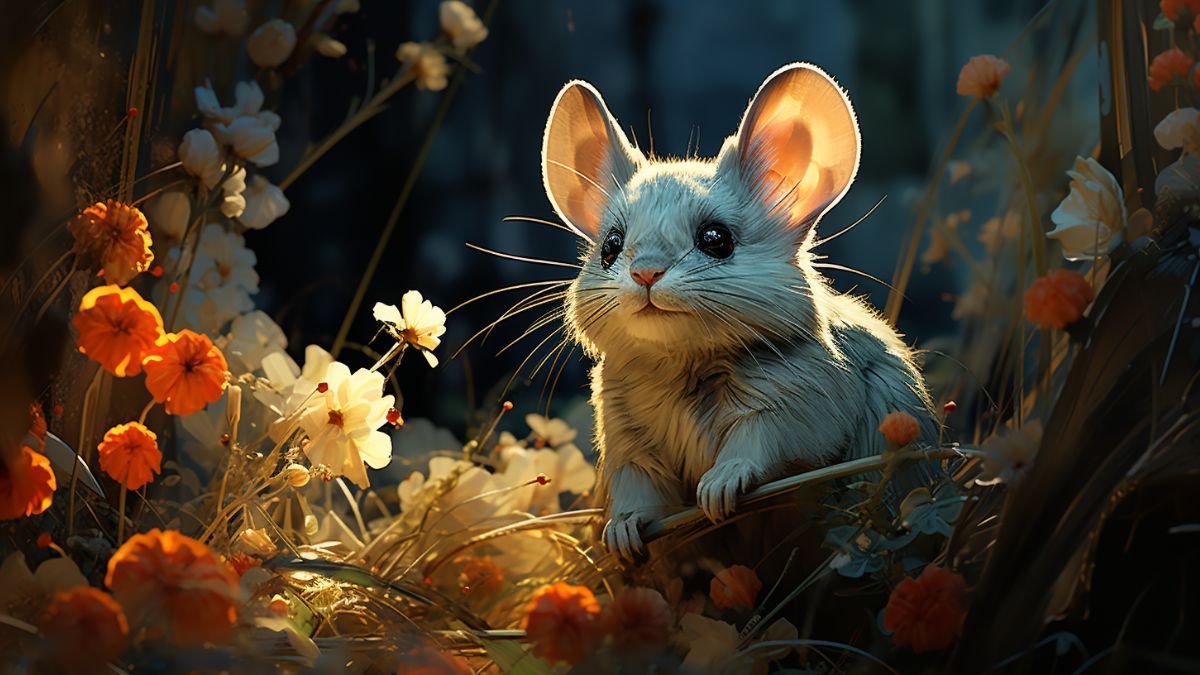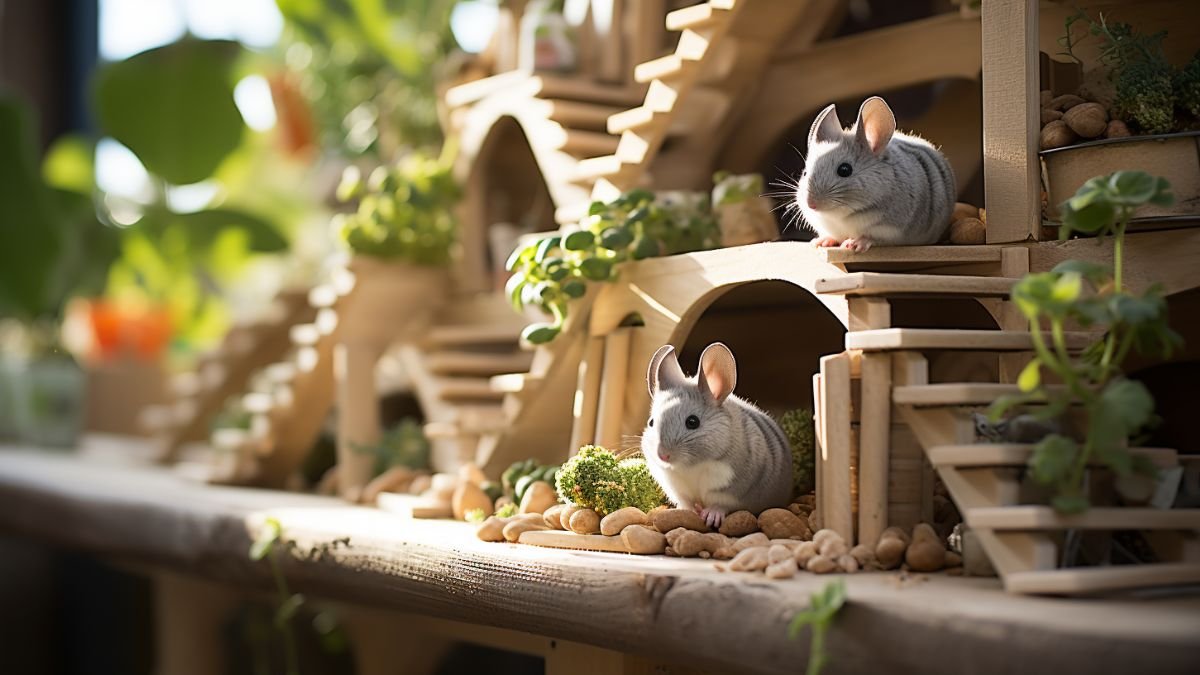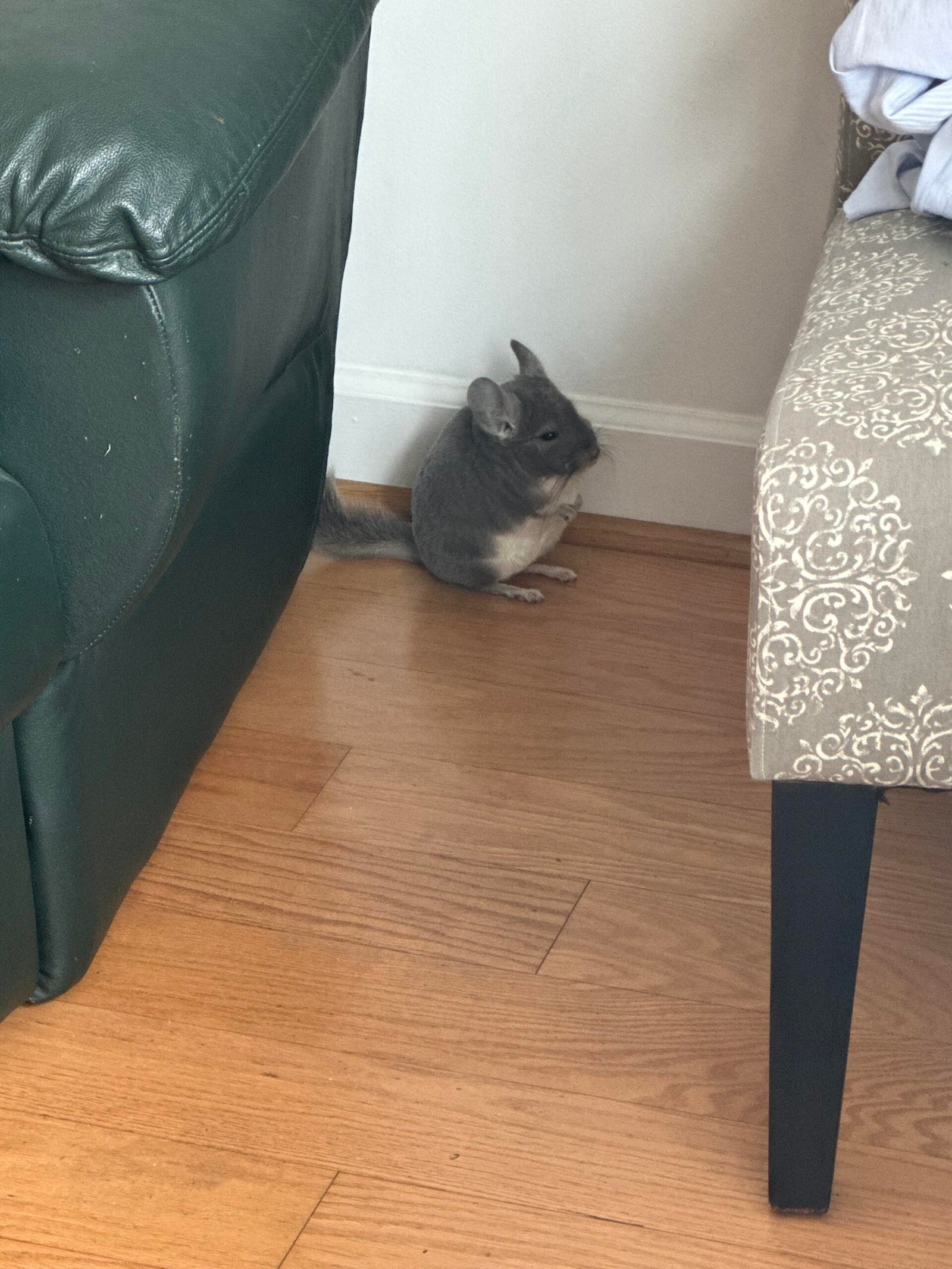
Have you ever wondered if your chinchilla is feeling stressed or unhappy? These small, fluffy pets can’t tell you how they feel with words, but their behavior and body language can give you important clues.
Understanding these signs is key to making sure your chinchilla stays healthy and happy. You’ll learn exactly what to watch for and how to respond. Keep reading to discover the simple ways you can spot stress in your chinchilla before it becomes a bigger problem.
Your pet’s well-being depends on it!
Behavioral Changes
Behavioral changes are often the first signs that a chinchilla feels stressed or unhappy. These changes can tell you a lot about their emotional state. Paying attention to how your chinchilla acts helps you understand what it needs. Sudden shifts in behavior often mean something is wrong. Watch closely to catch these signs early.
Increased Aggression
A normally calm chinchilla may start biting or lunging. Aggression can mean fear, pain, or stress. Your pet might snap at your hand or other chinchillas. This behavior shows discomfort or anxiety. Do not ignore sudden aggression. It needs attention and care.
Excessive Hiding
Chinchillas love hiding sometimes. But too much hiding is a red flag. A stressed chinchilla may stay hidden for hours. It avoids interaction and play. This behavior shows your pet feels unsafe. Check the cage and surroundings for stress triggers.
Loss Of Appetite
Stress often causes a chinchilla to eat less. Notice if your chinchilla skips meals or nibbles less. Poor appetite can lead to health problems fast. It is a strong sign of unhappiness or illness. Act quickly to help your chinchilla feel better.

Credit: qualitycage.com
Physical Signs
Physical signs show a chinchilla’s stress or unhappiness clearly. Watching their body closely can help you spot problems early. These signs often tell more than behavior alone.
Fur Loss Or Matted Fur
Chinchillas have thick, soft fur. Stress can make them lose patches of fur. Matted or clumpy fur also shows poor grooming. This happens when they feel unhappy or scared. Check their coat regularly for smoothness and shine.
Rapid Breathing
Normal breathing is quiet and steady. Fast or heavy breaths may mean stress. It can also signal pain or illness. Watch how your chinchilla breathes during rest. Rapid breathing calls for immediate attention.
Weight Loss
Stress often causes a chinchilla to eat less. This leads to sudden weight loss. Use a small scale to track their weight weekly. Losing weight quickly is a clear sign of distress. Act fast to find the cause and help your pet.
Vocalizations
Chinchillas communicate a lot through their sounds. These vocalizations show how they feel inside. Listening carefully helps you know if your chinchilla is stressed or unhappy. Different sounds mean different things. Some sounds warn you that your pet needs attention or comfort.
Frequent Screaming
A chinchilla that screams often feels scared or stressed. This loud noise is a clear sign of distress. It may happen if the chinchilla feels trapped or threatened. Screaming is a call for help or escape. If you hear this sound a lot, check for problems in their environment.
Unusual Chattering Sounds
Chinchillas sometimes make chattering noises with their teeth. This sound can mean irritation or discomfort. If the chattering is loud or frequent, the chinchilla may be unhappy. It might also show frustration or nervousness. Watch for other signs like pacing or hiding to understand better.
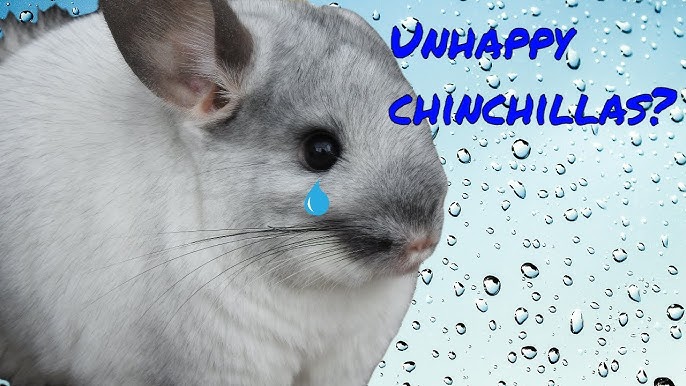
Credit: www.youtube.com
Activity Levels
Activity levels reveal much about a chinchilla’s mood and health. Changes in how much your chinchilla moves can signal stress or unhappiness. Watch for unusual behavior patterns. They often point to emotional or physical problems. Noticing these signs early helps you care better for your pet.
Restlessness
Restlessness means your chinchilla moves a lot without purpose. It may pace or jump nervously. This behavior shows anxiety or discomfort. Your pet might be scared or stressed. Restlessness often happens if the environment is too noisy or crowded. It can also mean your chinchilla is not feeling safe.
Lethargy
Lethargy means your chinchilla moves very little. It may sit still for long times or sleep more than usual. This low energy can mean sadness or illness. A stressed chinchilla might lose interest in playing or exploring. Lethargy is a clear sign your pet is unhappy. It needs attention and possibly a vet check.
Changes In Grooming Habits
Changes in grooming habits can signal stress or unhappiness in chinchillas. These small animals usually keep their fur clean and soft. When their grooming habits change, it means something is wrong. Watch closely for signs of over-grooming or neglecting grooming. These behaviors reveal your chinchilla’s emotional state.
Over-grooming
Over-grooming happens when a chinchilla cleans itself too much. This can cause bald spots or sore skin. Stress often makes chinchillas groom nonstop. It is their way to cope with discomfort or anxiety. Check for hair loss or red patches on their body. These signs show your pet feels uneasy.
Neglecting Grooming
Neglecting grooming means the chinchilla stops cleaning itself. Its fur becomes dirty and matted. This behavior is unusual for chinchillas. Stress, illness, or sadness can cause this change. Dirty fur can lead to skin problems. Notice if your chinchilla looks messy or smells bad. This may be a warning sign to act quickly.
Environmental Stressors
Environmental stressors play a big role in a chinchilla’s mood and health. Their natural habitat is quiet and cool. Changes in their environment can make them feel scared or unhappy. Watch for signs that show your chinchilla is not comfortable. These signs help you fix the problem fast. Two main stressors are noise and light, and temperature. Both affect your chinchilla’s well-being deeply.
Noise And Light Sensitivity
Chinchillas have very sharp hearing. Loud noises can scare them easily. Sounds like barking dogs, vacuum cleaners, or loud music can cause stress. Sudden noises make them jump or hide. Bright lights also bother chinchillas. They are used to dim places. Bright or flashing lights can cause discomfort. Keep their home calm and quiet. Use soft lighting and avoid loud sounds.
Temperature Issues
Chinchillas need cool, stable temperatures. They can get sick from heat quickly. Ideal temperature is between 60°F and 70°F (15°C to 21°C). Too hot or too cold makes them unhappy. Signs of heat stress include heavy breathing and weakness. Cold can make them shiver or stay very still. Avoid placing their cage near heaters or windows. Control the room temperature to keep them safe and calm.
Social Interaction Shifts
Chinchillas are social animals that enjoy interaction. Changes in their social behavior can signal stress or unhappiness. Watch how your chinchilla acts around people and other pets. Notice any sudden shifts in their desire to engage or withdraw. These social interaction shifts give clues about their emotional state.
Avoiding Contact
A stressed chinchilla may start avoiding contact. It might hide more often or move away when you approach. This sudden shyness or fear is a warning sign. Avoiding touch or play means the chinchilla feels unsafe or upset. Respect their space and observe closely for other signs.
Increased Clinginess
Some chinchillas become clingy when stressed. They may follow you more or demand attention constantly. This behavior shows they seek comfort and safety. Clinginess can also mean anxiety or confusion. Provide calm and gentle care to help your chinchilla feel secure again.

Credit: www.youtube.com
Health Problems Linked To Stress
Stress in chinchillas can cause serious health problems. These issues affect their daily life and overall well-being. Knowing the health problems linked to stress helps pet owners act quickly. It also improves the chinchilla’s quality of life.
Digestive Issues
Stress often leads to digestive problems in chinchillas. They might stop eating or have loose stools. These signs show that their stomach is upset. Digestive issues can cause dehydration and weakness. A stressed chinchilla may also develop bloat or gas pain. These problems need quick attention to avoid serious illness.
Weakened Immune System
Stress lowers the chinchilla’s immune defense. This makes them more likely to catch infections. Even minor illnesses can become severe. A weak immune system slows down healing. Stress also reduces the chinchilla’s ability to fight off germs. Keeping stress low helps maintain strong health and resilience.
Steps To Reduce Stress
Reducing stress in chinchillas is key to their happiness and health. Stress affects their behavior and well-being. Taking clear steps helps keep them calm and comfortable. Small changes in their care make a big difference. Focus on their environment, diet, exercise, and health checks.
Creating A Calm Environment
Keep your chinchilla’s space quiet and peaceful. Loud noises and sudden movements cause stress. Use soft lighting and avoid bright, flashing lights. Provide a cozy hiding spot where your pet feels safe. Clean their cage regularly to prevent bad smells.
Proper Diet And Exercise
Feed your chinchilla fresh hay and quality pellets daily. Avoid sugary or fatty treats that harm their health. Fresh water must always be available. Give your pet time outside the cage for safe play. Exercise helps reduce anxiety and keeps muscles strong.
Regular Vet Checkups
Schedule visits to a vet who knows chinchillas well. Regular checkups catch health problems early. Stress often comes from pain or illness. Follow the vet’s advice for care and treatment. Healthy chinchillas stay happy and relaxed.
Frequently Asked Questions
How Can I Tell If My Chinchilla Is Stressed?
Look for signs like restlessness, loss of appetite, or unusual hiding.
What Behaviors Show A Chinchilla Is Unhappy?
Unusual biting, constant scratching, or excessive fur chewing can indicate unhappiness.
Does A Stressed Chinchilla Make Specific Noises?
Yes, loud squeaking or teeth grinding often signal stress in chinchillas.
Can Changes In Eating Habits Show Chinchilla Stress?
Yes, eating less or refusing food can be a stress sign.
How Does A Chinchilla’s Body Language Show Stress?
Tense posture, rapid breathing, or shaking often show a stressed chinchilla.
What Environmental Factors Cause Chinchilla Stress?
Loud noises, sudden changes, and poor cage conditions often cause stress.
How To Help A Stressed Chinchilla Calm Down?
Provide a quiet, safe space and avoid sudden movements or loud sounds.
When Should I See A Vet For My Chinchilla’s Stress?
Seek help if stress signs last more than a few days or worsen.
Conclusion
Chinchillas show stress in many small ways. Watch their behavior closely every day. Changes in eating or activity can signal trouble. Providing a calm, safe space helps them feel better. Simple care and attention make a big difference. Knowing these signs keeps your chinchilla happy and healthy.
Stay patient and gentle with your pet always. Caring for their needs builds trust and peace. Stress can harm chinchillas, but you can prevent it. Keep learning and observing to give the best care.




